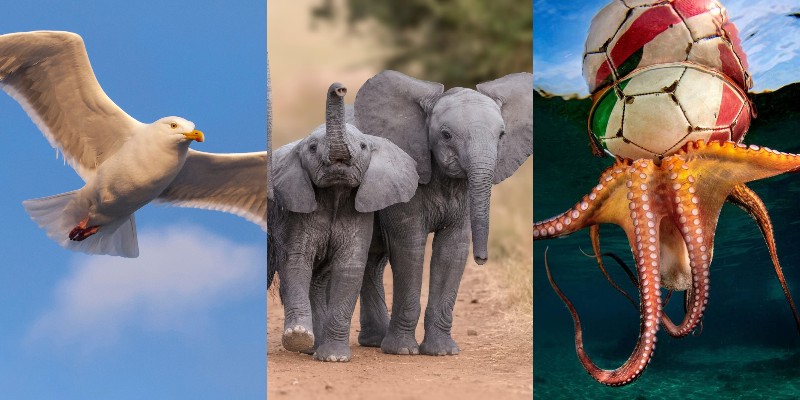
In November 2022, scientist Samadi Galpayage and her team at the Queen Mary University in London spent close to 60 hours observing bumblebees fidget with tiny wooden balls. After 18 sessions, each of three hours, the conclusions were definitive – bumblebees simply liked playing around with the wooden balls.
It is a groundbreaking discovery, making bumblebees the first insect witnessed as playing. Playing comes naturally to us – in fact, we can’t wait to play with our friends because it’s so much fun! But playfulness isn’t something that all animals pursue. Everything animals do is designed to teach them a skill or help them develop socially. The lion cubs you see on TV play with each other by jumping around, biting, and clawing – these are actions meant to make them good hunters while also forming strong bonds with their siblings.
But over the years, scientists have observed some animals engage in play that has no long-term benefit. This means they just play for fun like we do when we are bored. Let’s take a look at some of these playground prowlers.
A few scientists observed crocodiles for over 3,000 hours and have found that these scary predators, other than swimming and chomping on their prey, also love to spend time sliding down slopes into rivers and lakes. Young crocodiles push around objects like flowers and stones in a random manner. A 2.5-meter-long crocodile was even seen surfing the tides in Australia!

A crocodile swims in the sea along with the waves. Source: Alamy
Octopuses are highly intelligent creatures, and they require stimulation of all kinds. In a study, octopuses were given lego toys that they pushed, pulled and played with and even sent them floating to the top of the water. In another study, scientists observed cephalopods fill water into empty bottles for no apparent reason except for fun!

An octopus holds and inspects a football in water. Source: Alamy
Elephants love to play just like humans. Young elephants have been seen using naturally sloping parts of the land and wet mud near water bodies as a mudslide. They take turns to run and slide on the mudslide, piling on each other at the end and clearly enjoying themselves.

Baby elephants play in the mud and water. Source: Alamy
Horses have been known to start playing within hours of being born. Young foals are seen chasing each other, galloping in a distorted form, and even tossing objects like sticks and rags around.

Two foals jump and gallop around each other. Source: Alamy
Herring gulls, like parakeets, ravens and other birds, enjoy playing and have invented their own game. Scientists have observed that they love to carry objects like clams in their beaks while they fly and drop them from a height and try to catch the object mid-air before it hits the ground. They even observed that younger gulls do this with objects that aren’t food.

Two young herring seagulls chase each other as one holds a wrapper in its beak. Source: Alamy
Wouldn’t it be fun to see a world cup of animals playing their favourite sport? Which animal do you believe would win? Let us know in the comments below.
Learn more about the wild world of animals in ‘Did You Know?’:
Critter Communication: Interesting ways in which animals ‘talk’ to each other
Why do Animals Have Differently-Shaped Pupils? The Science Behind Different Types of Animal Eyes
Madhavi is passionate about everything to do with books, art, literature, films, trivia and food. A former journalist, she believes that asking questions makes life interesting.